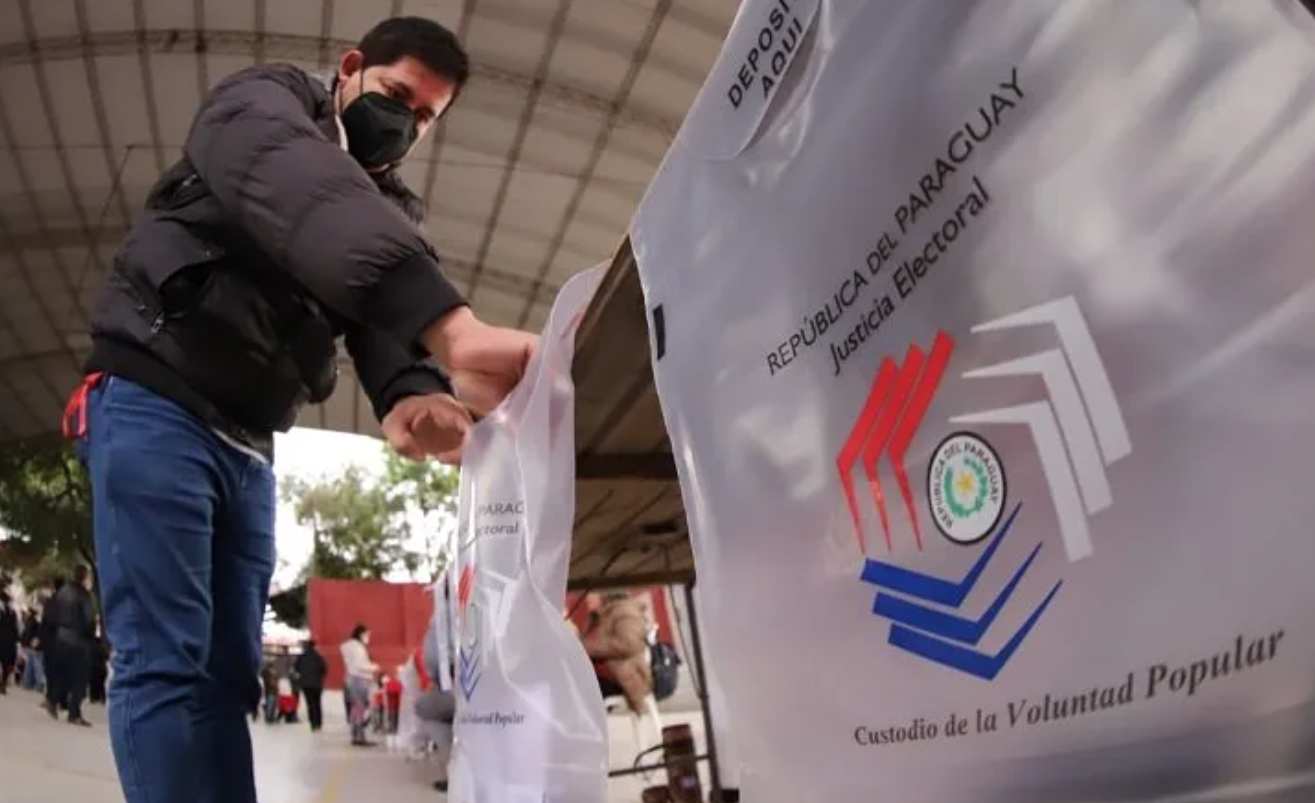On December 18, will take place in Paraguay the simultaneous internal elections of the political groups that will dispute the general elections in April 2023. These elections are taking place in the midst of a complex scenario of substantial reforms to the electoral system, the recent election of two new ministers of the Superior Tribunal of Electoral Justice (TSJE), and the increasing influence of organized crime in the financing of politics.
Due to the high levels of party affiliation concentrated (more than 70% of the electoral roll) in the two traditional parties, the Colorado and the Authentic Radical Liberal, the levels of competitiveness and electoral mobilization in their internal elections are high. Therefore, the results, often, are a preview of what will happen in the general elections.
Challenges to the electoral process
Last June, the Senate of the nation elected as new ministers of the TSJE, minister Jorge Bogarín González and minister César Rossel, the former an independent and the latter a member of the Authentic Radical Liberal Party. These ministers joined the Tribunal accompanying minister Jaime Bestard, of the Colorado Party, in the leadership of the electoral body. Amid this institutional reorganization process of the TSJE, internal elections will take place.
The figure of the Concertación, the unblocking of closed lists, and the use of electronic voting machines, these last two measures approved by Law No. 6318/19, make this electoral appointment next December a historical event. Although the unblocking and the voting machines were already implemented in the past municipal elections, they will be used for the first time in simultaneous internal elections for general elections. On the other hand, opposition political parties and movements are allied around the figure of the Concertación, having historically used the alliance as an electoral platform, which implies less formal requirements for the parties that integrate it.
Central actors in competition
The National Concertación “For a New Paraguay” is formed by 23 parties and 2 opposition political movements. Esperanza Martínez is responsible for the presidency of the political grouping. Martínez is from Frente Guasú, she was Minister of Health in the government of Fernando Lugo and is currently a national senator. The ideological tendency of the Concertación is heterogeneous and covers most of the spectrum of the left-right axis.
As for the candidacies for Congress (senators and deputies), each party presents its lists to compete against each other and exclusively uses its party lists. At the regional level, some parties and movements resorted to the figure of the alliance and agreed to integrate their final lists with candidates from different parties. This complex framework generates confusion in sectors of the electorate that express ignorance about how they should vote on that day.
Ahead of the elections, the Colorado Party remains a leading player in national politics. Its party membership is of more than 2.5 million people affiliated and qualified to vote in the internal elections of December 18, representing almost half of the electoral roll. 73,000 pre-candidatures for elective and party positions will be in dispute.
For the Presidency and Vice-Presidency of the Republic, there are two pre-candidatures that dispute with real chances: the Fuerza Republicana movement, related to President Mario Abdo Benítez, which nominates Arnoldo Wiens for the position of President, and the movement of former President Horacio Cartes (2013-2018), Honor Colorado, which nominates Santiago Peña, current president of the party and national deputy.
This party will also choose its internal authorities in the same election. Thus, the presidency of the political organization will be disputed by former president Cartes against Abdo Benítez.
Incidents in the pre-electoral context
Beyond the changes that make the election more complex, the national political context was convulsed between July and August by the U.S. government’s accusation of former president Cartes involvement in significant corruption, due to alleged money laundering and a connection with terrorist organizations. Subsequently, the current Vice President, Hugo Velázquez, was indicted for alleged bribery to obstruct a money laundering investigation.
The immediate impact was the resignation of Velázquez from the presidential pre-candidacy he had been running until that moment and had the support of the ruling party. The latter destroyed the political project and forced President Abdo’s entourage to replace the candidacy in the middle of the already advanced electoral process.
On the other hand, in September, a fire in one of the TSJE warehouse’s premises destroyed no less than 7,500 voting machines and technological equipment of the Preliminary Electoral Results Transmission System (TREP). The event occurred 45 days before the internal party elections.
Challenges and opportunities
The internal elections will be held in a challenging environment for political parties and the TSJE. The implementation of the unblocking has notoriously accelerated the increase in campaign costs and is an opportunity for the illegal financing of politics, which in turn challenges the public control agencies.
The destruction of irreplaceable voting machines forces a restructuring of voting places, as well as increases the number of voters per polling station and extends the voting hours until 7:00 p.m.
To this must be added the complexity of the emergence of the Concertación as an electoral figure and the use of the national electoral roll for candidacies to the Executive and of party rolls for candidacies to plurinominal bodies in the Concertación’s internal elections.
*Translated from Spanish by Janaína Ruviaro da Silva













